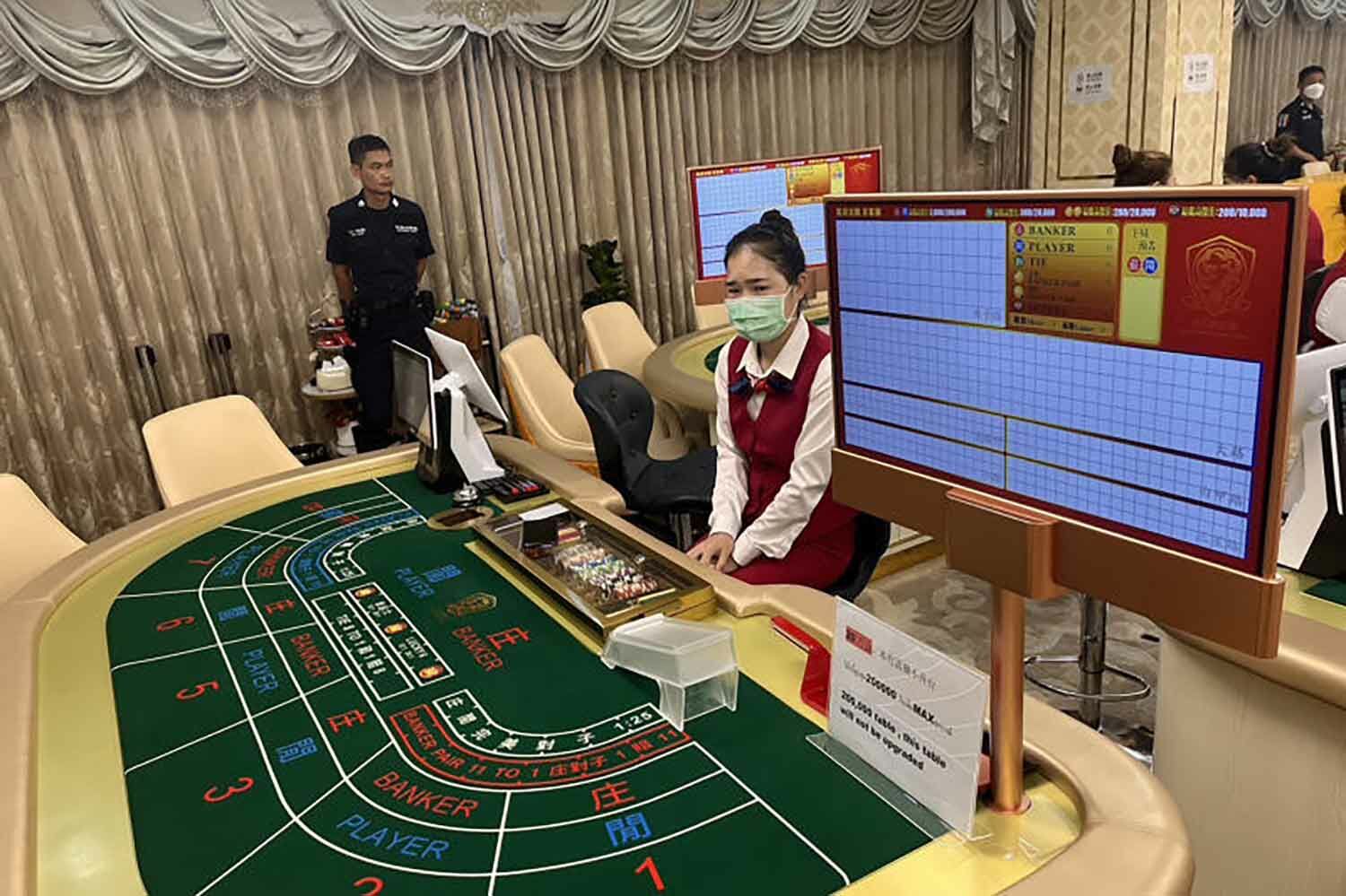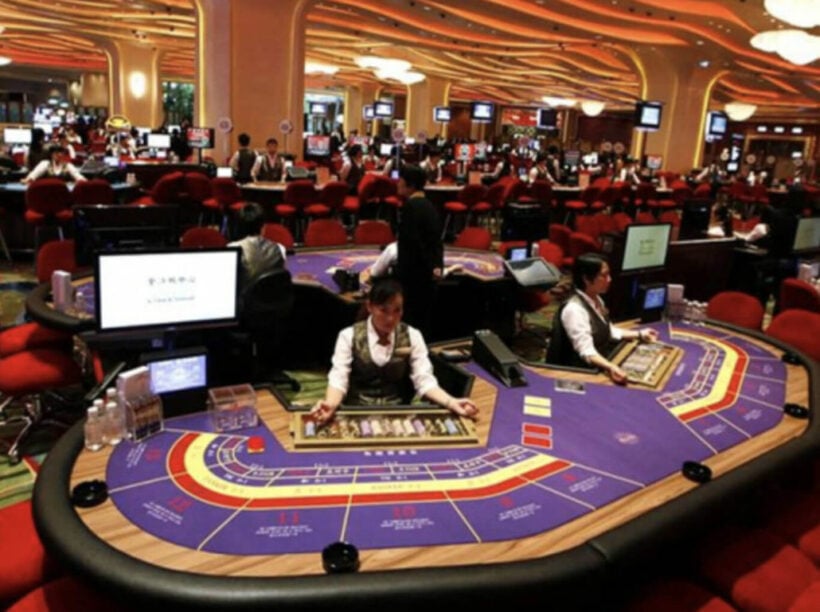What is the current state of Thailand’s casino legislation, and how likely is it to change in the near future?

Thailand stands on the brink of a potentially transformative shift in its approach to gambling. For many years, casinos have been completely banned in the country, reflecting a conservative stance deeply rooted in cultural and legal traditions. However, recent developments suggest that Thailand might be on the path to legalising and regulating casino operations, marking a significant departure from its long-standing policies.
Current State of Casino Legislation in Thailand
Cabinet Approval
In a major move that signals a potential change, the Thai Cabinet gave its nod to the need for specific legislation governing casino operations. In April 2024, the Cabinet approved a draft Entertainment Complex Bill, which sets the stage for the possible legalisation of casinos in the country. This is not just a symbolic gesture but a clear indication that the government is serious about revisiting its gambling laws.
Public Consultation
Following the Cabinet’s approval, a draft casino bill was released for public feedback. This bill is crucial as it outlines the framework for establishing large-scale entertainment venues with integrated casinos. The government has opened the draft for public consultation until August 18, 2024, allowing citizens, stakeholders, and interest groups to voice their opinions and concerns. The inclusion of public consultation is a strategic move, signalling transparency and the government’s willingness to consider public sentiment before making a final decision.

Strong Political Support
One of the most compelling factors driving this potential change is the strong political support for casino legalisation, particularly from Prime Minister Srettha Thavisin. The Prime Minister has been a vocal advocate for the legalisation of casinos, frequently emphasising the economic benefits that could follow. This includes boosting tourism, generating substantial revenue, and creating new jobs. The Prime Minister’s backing indicates that the government sees casino legalisation as a viable option for economic development.
Likelihood of Legislative Change
The momentum towards changing Thailand’s casino laws appears strong, with several key factors pointing towards a shift in the near future. Here’s a closer look at why this change seems likely.
Overwhelming Political Support
The push for legalised casinos isn’t just coming from the Prime Minister; it’s backed by a broad consensus within the government. Many policymakers believe that regulated casinos could provide a much-needed boost to Thailand’s economy. The potential benefits are clear: increased tax revenues, a surge in tourism, and thousands of new jobs. This political unity is a significant indicator that the government is prepared to move forward with this legislation.

Public Opinion Shift
While traditionally, there has been resistance to gambling in Thailand, recent years have seen a shift in public opinion. More people are beginning to see the potential benefits of regulated casinos, especially when they are tied to economic growth and job creation. Although there is still some opposition, particularly from more conservative segments of society, the overall trend is towards acceptance. This growing public support is crucial, as it reduces the likelihood of significant pushback against the legislation.
Economic Incentives
The economic arguments for legalising casinos are compelling. Thailand, like many countries, is looking for ways to stimulate its economy in the wake of global economic challenges. Legalised casinos could be a lucrative source of revenue. They would attract both local and international tourists, who would spend money not only in the casinos but also in hotels, restaurants, and other entertainment venues. Additionally, the government would benefit from taxing casino revenues, providing a new stream of income that could be used to fund public services and infrastructure projects.
Despite the strong push for legalisation, there are still several hurdles that need to be addressed.

Regulatory Framework
One of the biggest challenges will be developing a robust regulatory framework to govern casino operations. Effective regulation is essential to ensure that gambling is conducted responsibly and to mitigate potential negative impacts, such as gambling addiction and organised crime. The government will need to establish clear rules and oversight mechanisms to ensure that casinos operate transparently and ethically. This will require careful planning and consultation with experts in the field.
Public Opposition
Although public opinion is changing, a significant proportion of the population still opposes the legalization of casinos. This opposition is often rooted in concerns about the social consequences of gambling, such as addiction and increased crime. In the US, some of these concerns are being addressed by the increasingly popular social sweepstakes casinos, where no real money is wagered. The government will have to address these concerns, possibly through public education campaigns and assurances that strict rules will be put in place to minimise the negative consequences. It’s also important to consider that social casinos, while addressing some concerns, may not directly generate revenue for the government, which is a potential reason why they may be looking at legalising traditional casinos.

Implementation Timeline
Another uncertainty is the timeline for implementing any new legislation. Even if the government moves forward with legalising casinos, the process of establishing the necessary infrastructure, issuing licenses, and setting up regulatory bodies could take several years. There is also the possibility of legal challenges or delays as the government navigates the complexities of changing long-standing laws. This makes it difficult to predict exactly when the first legal casinos might open their doors in Thailand.

The current state of Thailand’s casino legislation is one of cautious optimism. The government’s approval of a draft bill and the Prime Minister’s strong support for legalisation are clear signs that change is on the horizon. However, this change is not guaranteed, and several challenges remain. The government will need to carefully balance the potential economic benefits with the need to address public concerns and develop a comprehensive regulatory framework.
Overall, while the path to legalising casinos in Thailand is not without obstacles, the strong political will and potential economic incentives make it highly likely that significant changes will occur in the near future. If these changes do come to pass, they could mark a major turning point in Thailand’s approach to gambling, opening up new opportunities for economic growth and tourism.
Latest Thailand News
Follow The Thaiger on Google News:


























